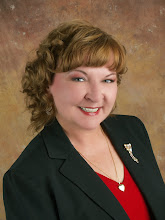I am very excited about 2009. Personally I have some fun stuff planned. Professionally I will be expanding my business, adding a larger nonprofit component. As for telecommunications, there will be opportunities this year for modifying or overturning the harmful state legislation of the past few years. And we can all look forward to a “new” FCC being created. There is much to celebrate.
In the midst of optimism comes a bitter pill. After years of effort, PBS in Rhode Island will officially take over PEG access stations and programming. When I say years of effort, I remember PBS working to get control over PEG in Rhode Island dating back to 1998 and I would assume it started long before then. There has been a long standing battle between PBS and PEG, with the aggression emanating from PBS, not PEG.
PBS has been after franchise fees. PBS has been after channels. PBS derides PEG and hurls snipes about PEG production values. While the PEG community has always been supportive of PBS, even to rallying its troops to defend PBS and the Corporation for Public Broadcasting on Capitol Hill, there has never been anything but a spit in the eye to PEG coming from PBS.
In July 1998, Ervin S. Duggan, President of PBS, said access channels were “underutilized resources in the country” and that "access channels fail because of a vaguely defined mission and lack of editorial intelligence." This was part of his attempt to take over Public access in Hawaii.
The following year, WETA teamed up with the Freedom Forum in a bid to start a “public affairs network” beginning with trying to wrest control of six access channels in the D.C. metro area. Again, they talked about how underutilized the channels were. But when they presented their programming plan for the access channels, there was no more than four hours of American public affairs programming each day and the rest of the time was filled with BBC re-runs. How enlightening. Needless to say they failed to get the access channels.
I personally will never forget the Aspen Institute meeting where Terence Smith (producer for the NewsHour with Jim Lehrer) represented PBS and I represented the Alliance for Community Media. The Center for Governmental Studies played a video from a New Hampshire PEG channel as part of their presentation on “Producing Election Coverage for Your Community.” The video was a direct interview of John Kerry, done by a teenager. It was less of an interview than an opportunity to turn the camera on Kerry and allow him to speak without interruption or spin or the two cents of the producer. Kerry waxed on and on, looking straight into the camera, covering issues from foreign policy to economic reform.
Mr. Smith interrupted the presentation, loudly proclaiming how “boring” it was and laughing about its production values. Of course that did not sit well with me. I countered that if the Kerry interview was boring perhaps it was because Kerry himself was boring and maybe the American people needed to see that. And maybe instead of polishing politicians up, throwing them softball questions and making rock stars out of them, we should just sit them in a room with a camera in their face and let them speak, so we can really get to know them. Terence Smith’s proclamation essentially shut down the presentation and it was clear to me that like so many in the PBS culture, he just didn’t “get it.”
The PBS plan in Rhode Island includes the loss of live coverage of town council meetings and requires the towns to drive their tapes over to PBS’s studios, and “every effort will be made to play them in a timely fashion.” Residents who want to get their programming on must be aware that “PBS will not broadcast anything that has overt corporate sponsorship, advertising or is a product pitch of any sort" on the access channel. PBS will only do that on the PBS channel. In the transition, South Kingstown High School will lose its direct live feed. The videography teacher at the high school reported that he felt “out of the loop” in the changeover and it will be a loss to the community to no longer have its own local station.
Ya think?
The folks who were running PEG and now will be working for PBS to run PEG presented a workshop at the Northeast Conference of the Alliance for Community Media a few months ago. It was something like “we do it differently in Rhode Island and here’s how we make it work.” I and a colleague had a good laugh over that one. Here’s a news flash…it doesn’t work in Rhode Island because the state has never allowed it to work and everybody in the nation that knows anything about PEG shakes their head whenever Rhode Island is brought up.
So in the midst of celebration, we have much to mourn. PBS finally got what it wanted, control of the access channels in Rhode Island (not to mention what we don't know about the money). It’ll be great, because as everyone knows, PBS is sooooo committed to local programming.




